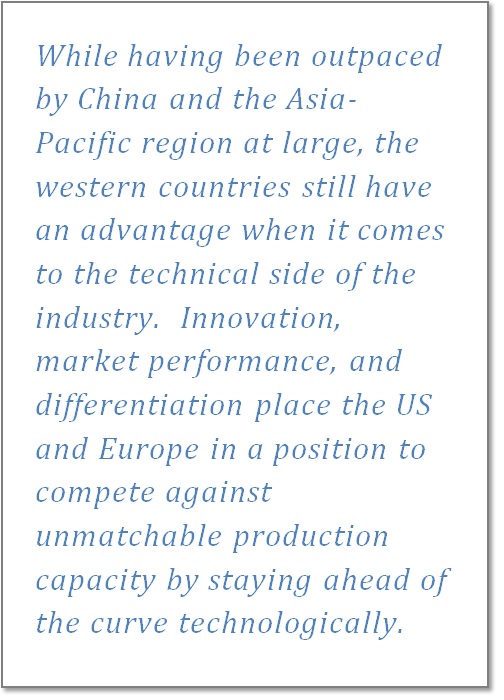Chemical Production: The Shadow of the Chemical Emperor
By: Erik Kane | On: June 6, 2018

Okay so maybe “Chemical Emperor” is a bit of a dramatic title…
but it’s hard to downplay the fact that China has taken the entire chemical world by storm in the past 15 years. In the early 2000’s, China had already grown to be a world-leader in the chemical industry, yet was still sitting quietly towards the back of the pack. The US and Europe were comfortably and expectedly out-producing China as they had done historically. But in the short span since, the growth of China’s chemical industry has been nothing short of mindbogglingly explosive. Through both international investment and lucrative internal governmental incentive, China is now the undisputed leader in chemical production worldwide, but how will they continue to grow in the future? And how will the rest of the world arm itself to remain competitive?
Chemicals and petrochemicals are an incredible and monumental industry because they influence such a wide array of different end-products. Water bottles, paints, cosmetics, carpet, clothing, agriculture and semiconductors are just a small grab bag of the all-encompassing reach of the chemical industry. Though there are an enormous number of derivative end products that come out of chemical plants that go into these different industries, a disproportionate share of the production lies with just a few different building blocks, which we call the base chemicals. These are the building blocks of not only countless end products but also of China’s competitive chemical economy.

As the world’s population and our quality of life has continued to grow, directly tied to this is the global demand for huge amounts of base chemicals. This is where China has found the fuel for its explosive growth. By building enormous capacity for chemicals like Ethylene and Methanol, they’ve blown up to be the largest producer of chemicals in the world. Hundreds of billions of dollars being spent annually in plant expansions and additions have continued to balloon their capacity. So how can anyone compete against this growing snowball effect?
The answer lies in technology and diversity. The farther downstream you get in the chemical industry, the more complicated and specialized the production becomes. By increasing our ability to expertly produce specialty chemicals more efficiently, and by making new chemicals through technology, innovation can combat and complement the mass-production of base chemicals. But it’s not an ace in the hole. China is increasingly thirsty for fresh technology and innovation, and has used the initial boom from international investment to educate their own state-sponsored chemical companies. It’s no secret that they have used foreign business as a stepping stone and are now trying to inspire as much internal growth and competitiveness as possible; even using laws stating that patents must be registered in China first even if originally developed elsewhere, and can force the owners of the patents to surrender them if deemed “unfair” – a hard-handed tactic for acquiring competitive knowledge.
Like the Beijing skyline, China’s chemical industry has grown quite large horizontally and is now looking to stretch vertically through the supply chain, as indicated by these hardcore competitive measures. While having been outpaced by China and the Asia-Pacific region at large, the western countries still have an advantage when it comes to the technical side of the industry. Innovation, market performance, and differentiation place the US and Europe in a position to compete against unmatchable production capacity by staying ahead of the curve technologically. In short: quality over quantity…for now, but not forever.
With global chemical demand expected to continue to rise, and no end in sight to China’s ability to outpace the globe in expanding capacity, we have to be able to evolve in order to continue to compete. Creating technologies, efficiencies, and market demands that currently do not exist will be a necessity in the global marketplace to stay afloat, and suppliers like Hose Master and our distributors will continue to be there to assist them with their most critical applications. If you have a flexible connection issue or application in a chemical plant, give Hose Master a call at 1-800-221-2319 or send us an e-mail at insidesales@hosemaster.com and use our industry expertise to your advantage.
Sources:
- https://www.atkearney.com/chemicals/article?/a/china-s-chemical-industry-flying-blind
- https://www.industrialinfo.com/webinars/2017/chemical/post/slideshow/#
- https://www.essentialchemicalindustry.org/the-chemical-industry/the-chemical-industry.html
- https://www.mckinsey.com/industries/chemicals/our-insights/chemicals-changing-competitive-landscape
- https://cen.acs.org/articles/96/i2/world-chemical-outlook-for-2018.html
Copyright 2018, Hose Master, LLC
All Rights Reserved

